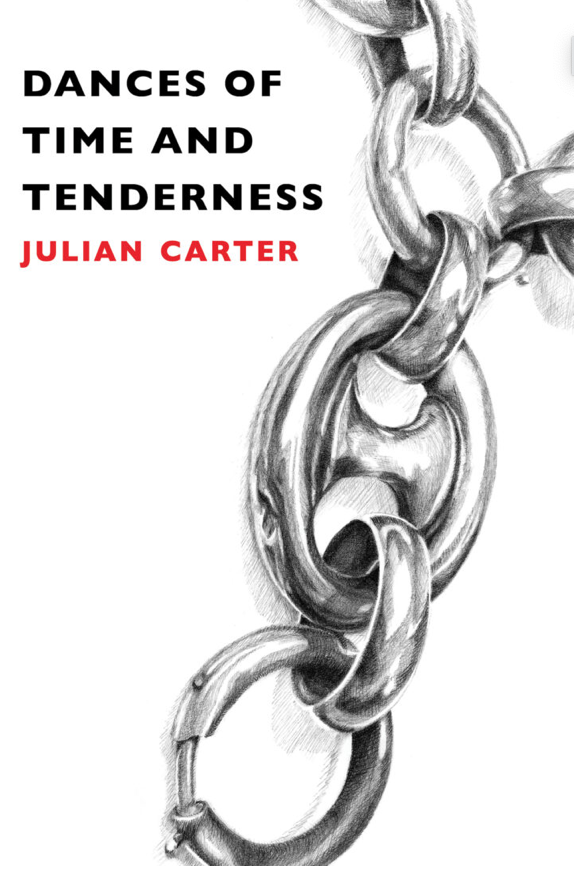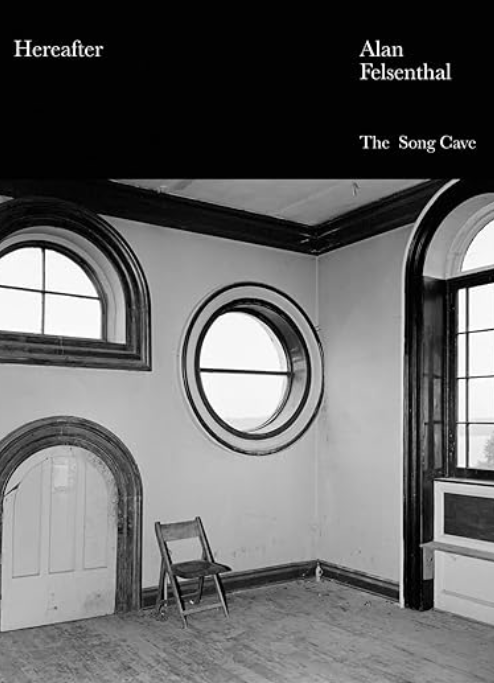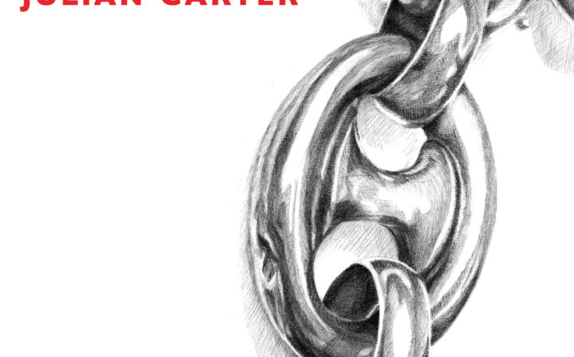 Scattered Snows, To the North
Scattered Snows, To the North
by Carl Phillips
Farrar, Straus and Giroux
80 pages, $26.
 Dances of Time and Tenderness
Dances of Time and Tenderness
by Julian Carter
Nightboat Books, 144 pages. $17.95
 HEREAFTER
HEREAFTER
by Alan Felsenthal
The Song Cave, 96 pages. $18.95
PERHAPS there is no one as romantic, or as wistful, as a poet in old age. Likewise there is nothing that spurs a poet’s ruminations so profoundly as loss. Three new collections explore old age and loss in various ways (one in an almost uncategorizable way), each with varying degrees of effectiveness.
Carl Phillips is, quite simply, one of America’s most elegant and masterful poets. He has also become over time one of the most essential poets exploring gay subject matter. Winner of numerous awards and honors, including the Pulitzer Prize for Then the War: And Selected Poems 2007–2020, his new volume finds him again writing at the height of his powers. Phillips’ lines typically curve and meander in literate but unexpected ways, with startling line breaks that often engender a secondary sense, but which do not, for the most part, hinder understanding. It is a style that he achieved even in early poems like “Tunnel,” from 1998, in which he movingly imagines Achilles’ grief upon the death of Patroklas: “Here is the body./ Do not imagine now balm./ The wounds are to be/ left open.”
Phillips’ masterly, elegiac voice continues in Scattered Snows, to the North, which explores among other things the approach of old age. (I take the reference to “scattered snows” to refer to death hovering ominously at the edges of awareness, like the Goths on the outskirts of Rome.) Indeed, the title of his volume of selected poems from 1986 to 2006, Quiver of Arrows, metaphorically implies that every poem is a little weapon against death. It is also an allusion to one of Phillips’ most frequent themes: the simultaneous presence of beauty and pain.
There is a great deal of both beauty and pain in Scattered Snows. It also seems again to me to be haunted by the specter of AIDS. Take a poem like “Somewhere It’s Still Summer,” in which the poet movingly checks his own impulse to mythologize early victims of the disease by reminding himself that they were actual men, who lived and died: “These/ were men, riding horses. Absolutely nothing mythological/ about them.” Similarly, in the poem “Thicket,” the poet tries to make sense of his memories of love, sex, and violence, comparing himself to one of the quieter, lonelier animals in the woods which, ultimately, simply vanishes, as did all those who perished from AIDS. Though these are painful subjects, Phillips pointedly asserts, both to the reader and to himself: “Speechlessness/ is not an option.” Love and loss are beautifully captured in this exquisitely wrought, quietly profound collection. As Phillips puts it later in that same poem: “isn’t this/ obedience, these songs I’ve/ built from things too difficult/ to speak of?”
Dances of Time and Tenderness, by Julian Carter, is also about loss, notably in connection with the death of Lou Sullivan, a founding member of the GLBT Historical Society and the author of a diary about gay life and transitioning in San Francisco. In his own words, Carter is himself a “whitequeer transsexual,” and as he wryly writes: “By the time you document my presence I’ll have moved on.”
Part essay, part poem—perhaps an essay with flights of poetry—the book is the second nearly uncategorizable book I’ve reviewed from Nightboat Books (the first was Stéphane Bouquet’s poetic play, or play-poem Common Life). Smartly and elegantly, Carter’s essay-poems begin in one place and end up in another, much like the notions of self and gender the book so playfully explores. In one place, Carter cites a photograph by an artist who made a line by walking across an English meadow and back again. So, Carter winds across subjects and decades to make links and associations with other queer or trans people. He can be hip and funny, noting slogans and signs that catch his eye, such as fuck your gender, and—after Trump was elected president—the surreal sign: never again is now. Although he insists repeatedly and comically that the book is not a memoir, it is clear that this attempt at “transcestrality” seeks to make links and connections in whatever manner it can. It is a smart, provocative, and entertaining book.
Finally, Alan Felsenthal’s Hereafter is another volume of poetry prompted by the loss of a friend. Many of the poems have an elegiac tone and document a deep sense of loss connected to his friend’s ordeal: “You have proven/ the way toward death/ is worse than death.” There is anger and helplessness in many of the poems (“it’s never too late for poetry/ until it is”) as well as profound sorrow: “just say my subject is grief.” To my mind, some of Felsenthal’s fragmentary lines are better than the poems overall, yet he has any number of very effective passages, such as this one: “The epicenter of pain/ moves/ through continents years/ disappears the center of/ the world equidistant to/ wherever you’re standing.” Hereafter is a lovely tribute to a friend and does what poetry does best: commemorate change and loss.
Dale Boyer’s latest collection is Columbus in the New World: Selected Poems.






